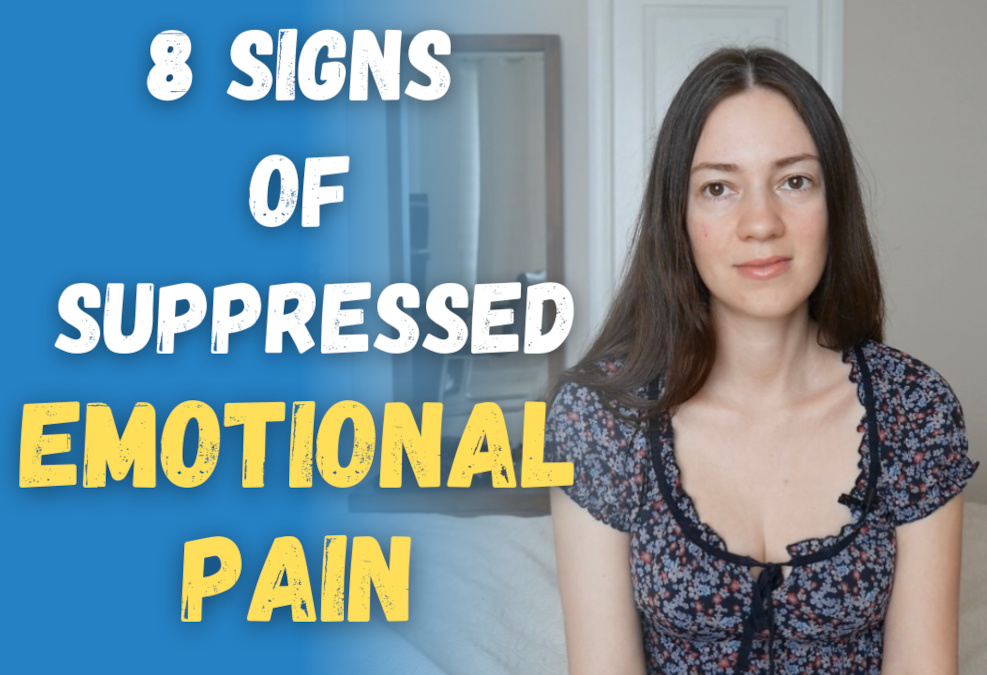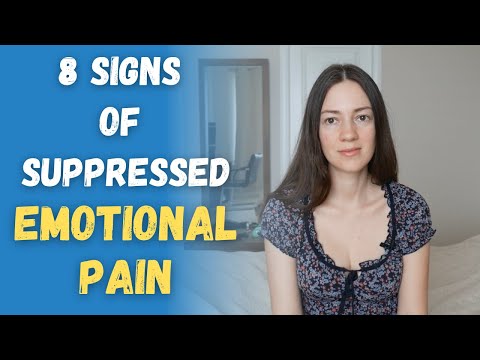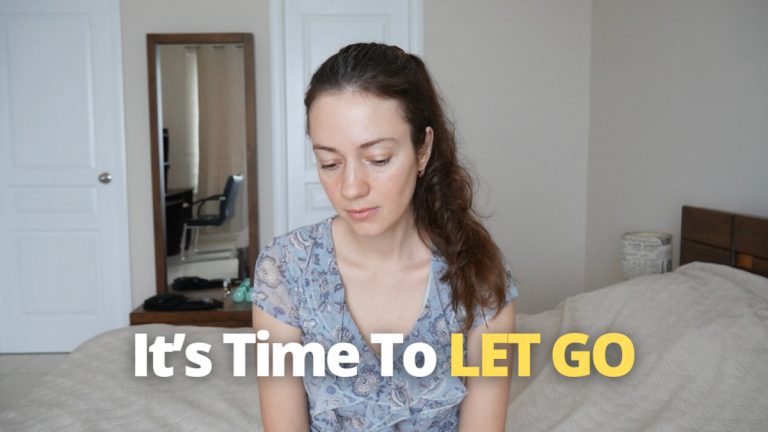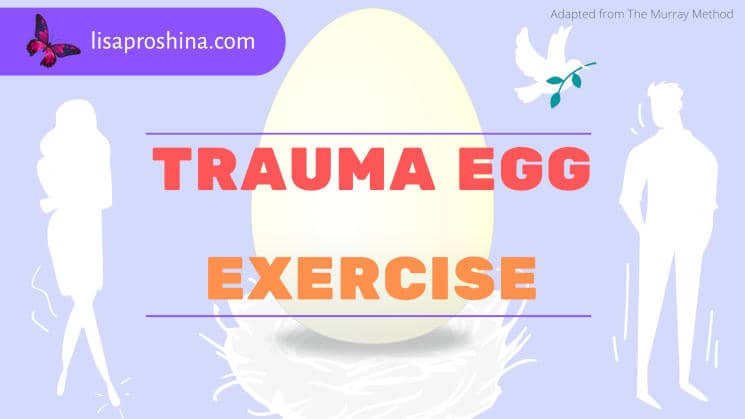8 Signs of Unprocessed Pain and Suppressed Negative Emotions
Suppressed or unprocessed emotional pain isn’t always obvious. It doesn’t always scream or demand your attention. More often, it hides behind everyday habits, emotional patterns, or even physical sensations that seem “normal” until you begin to look closer.
In this article, I want to share eight subtle but powerful signs that you may be carrying unprocessed emotional pain, and how this can quietly drain your energy, block your joy, and affect your life. I’ll also offer insights and resources to help you begin processing and releasing what no longer serves you.
Table Of Contents
1. Strong Emotional Overreactions to Small Triggers
Have you ever snapped at someone for something minor or felt deeply hurt by a seemingly innocent comment or gesture? Maybe someone uses a certain tone, forgets to reply to a message, or makes a small mistake—and your reaction is disproportionally intense. This could be a sign that your reaction is not just about the present moment.
These seemingly small triggers often touch on emotional wounds that haven’t healed. They mirror past experiences where you felt powerless, unseen, or hurt. And because those original emotions were never fully processed, today’s minor situations reopen old pain, bringing the whole wave of emotion back into your body.
Recognizing these overreactions as signs of unhealed wounds is the first step toward compassion and self-awareness. Instead of blaming yourself for being “too sensitive,” you can start asking: What is this reminding me of? What am I really feeling underneath?
2. Chronic Procrastination & Self-Sabotage
When you keep putting off things you care about—goals, creative projects, or important decisions—it can feel like laziness or lack of discipline. But often, procrastination is not about being lazy. It’s a protective mechanism.
Unprocessed emotions like fear, shame, and the memory of past failures can live beneath the surface and create resistance. You might fear judgment, rejection, or disappointment. If you’ve experienced deep emotional pain from “failing” or not meeting expectations in the past, your mind may associate taking action with getting hurt.
This is self-protection disguised as sabotage. Your inner system tries to protect you from pain by keeping you “safe”, which means avoiding new risks. But in the process, it also blocks your growth.
Once you begin to acknowledge these fears, your procrastination becomes more understandable, and more healable.
3. Avoidance Behaviors (Scrolling, Overeating, Binge-Watching)
We all use distractions sometimes. But when you constantly need to numb yourself with screens, food, or noise, it may be your mind trying to shield you from emotions that feel too heavy to face.
These behaviors offer temporary relief. Scrolling through social media or binging shows can feel soothing in the moment, but afterward, you’re often left feeling more tired, disconnected, or anxious.
This kind of numbing is a sign that your emotional system is overwhelmed. Your inner world is calling for your attention, but you’re directing your energy outward to avoid looking inward. Real healing starts when you can gently begin to pause, notice, and sit with your emotions, even for a few moments at a time.
4. Chronic Fatigue & Physical Tension
If you’re feeling constantly tired, burned out, or physically tense even when you’re not doing anything particularly strenuous, it could be emotional, not physical.
Holding in emotions takes effort. Suppressing anger, grief, fear, or sadness creates stress in the body. Over time, this emotional load can translate into muscular tension, headaches, low energy, and a general sense of heaviness. It’s your body’s way of carrying what your heart hasn’t had space to feel.
If no medical reason can explain your fatigue, it might be time to look at what you’re carrying emotionally. Are there feelings you’ve been avoiding for years? Are you constantly “on guard” internally? Releasing emotional pain can often result in a surprising return of energy and clarity.
5. Emotional Numbness or Disconnection
On the surface, emotional numbness can look like calmness or even strength. You might seem like someone who handles everything well. But underneath, you may feel detached—from your emotions, your desires, and the richness of life.
This type of disconnection is a defense mechanism. It’s what happens when feeling becomes too dangerous or painful, so your system shuts it down. The problem is: when you suppress fear, grief, or anger, you also cut yourself off from joy, excitement, love, and gratitude.
You may find yourself going through the motions, achieving goals but not feeling fulfilled, being with people but feeling alone. Reconnecting with your feelings can feel scary at first, but it is also the doorway back to feeling alive again.
6. Feeling Overwhelmed by Simple Tasks
If everyday tasks like replying to an email or making a phone call feel unusually draining or paralyzing, emotional baggage might be the cause. Your energy is not available because it’s already being used up by your nervous system’s efforts to suppress and manage unhealed emotional stress.
Even simple responsibilities can feel exhausting when your internal world is carrying too much. Your mind may also fear what completing the task might mean: exposure, change, or vulnerability.
This doesn’t mean you’re broken or incapable. It means you’re burdened. And there is a difference. By slowly working with your emotional backlog, you’ll notice that small tasks begin to feel more manageable.
7. Inability to Relax (Even When Everything Is Fine)
Sometimes we wait for peace, thinking, “Once I finish this project” or “Once I solve this problem, then I’ll relax.” But then you get there… and still feel restless, anxious, or tense.
This is a sign your nervous system never learned how to feel safe. Especially if you grew up in an environment where peace was quickly followed by chaos, or where you had to always be “on alert,” your system doesn’t recognize safety, even when you’re safe now.
Unprocessed emotional trauma trains the body to live in a state of hypervigilance. It’s like the alarm system never turns off. Healing means gently teaching your body that it’s okay to rest. That safety is possible. That you no longer need to be on high alert all the time.
8. Harsh Self-Criticism and Inner Blame
This is one of the most painful signs of unprocessed emotional wounds. That critical voice in your head, the one that says you’re not enough, not doing enough, or not good enough, didn’t start with you.
It’s often a voice you absorbed from your childhood: a parent, teacher, or someone who made you feel like your worth depended on performance, behavior, or perfection.
Over time, you internalized this critic as your own voice. But it’s not you. It’s a survival adaptation that grew out of fear and emotional pain. And while it may have once been protective, it now holds you back.
To start healing this voice, I recommend reading my articles on self-love, self-acceptance, and my 90-day journaling practice that helped me transform my inner dialogue. These are tools that can help you replace judgment with compassion and slowly learn to become your own inner ally.
You’re Not Lazy or Broken. You’re Carrying Pain.
If you recognized yourself in any of these signs, especially several at once, please know this: you’re not lazy, broken, or hopeless. You’re likely carrying unprocessed emotional pain.
And you can begin to heal.
I’ve written a dedicated article on how to process emotions in a healthy way, based on methods I’ve used personally. The beginning of this journey can feel uncomfortable, facing what we’ve suppressed is not easy. But healing happens when we give our emotions space to be seen, felt, and released.
I also highly recommend the book Letting Go by David Hawkins, which explores the spectrum of emotional energy and how to move through lower states like shame, guilt, and fear. I shared more about this book and how I use its teachings in a review video that you can check.
Start Reclaiming Your Energy
Suppressed emotions drain your energy. They disguise themselves as fatigue, numbness, self-doubt, and avoidance. But you don’t have to keep carrying them.
You can begin releasing them, gently and safely. And if you want guidance, I offer 1:1 coaching where we identify and heal the root of emotional wounds from childhood or other life experiences.
This healing is possible. And you deserve to feel better.
Your energy wants to come back. All you need to do is create the space for it to return.








